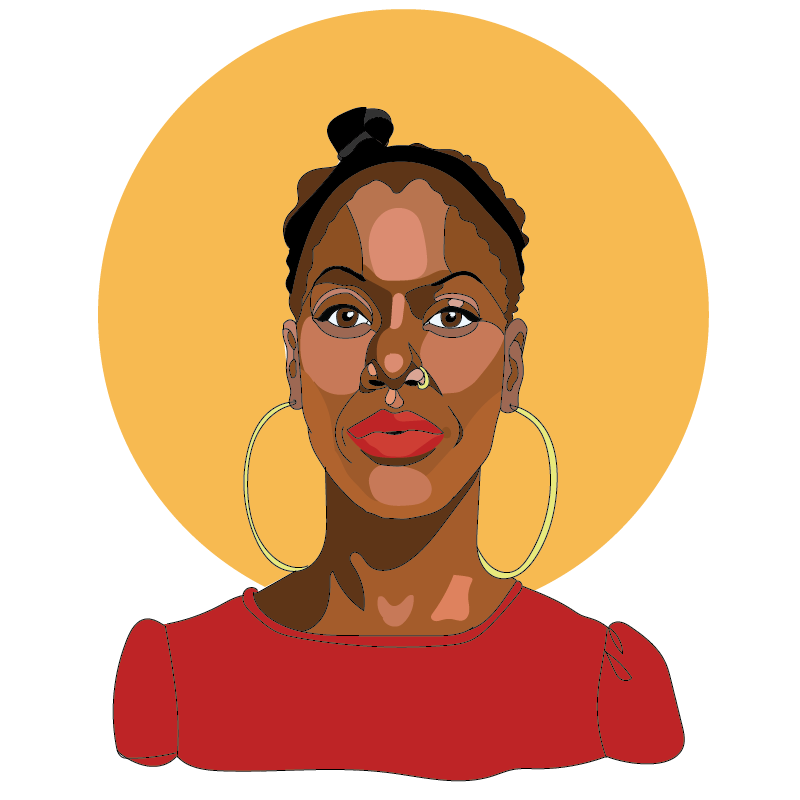An Interview with Dr. Khiara M. Bridges on Racism in American Maternal Health Care
womanly chats
Issue No. 4: Black Maternal Health
Words - Terri Fleming
Illustration - Singha Hon
Dr. Khiara M. Bridges is a Law Professor and the Associate Dean for Equity, Justice, and Engagement at Boston University. She’s the author of three books, including Reproducing Race: An Ethnography of Pregnancy as a Site of Racialization.
Terri Fleming, Womanly Magazine Health Educator, discussed the intersections of race, class, and maternal health with Dr. Khiara M. Bridges, and explored the possibility of a way forward for health care providers and the Black women they serve.
Terri Fleming: Can you talk about why Black maternal health has been your focus?
Dr. Khiara M. Bridges: Pregnancy and motherhood dramatize some of the most glaring examples of the different valuations placed on different bodies and lives in our country. White motherhood, historically and presently, has a supreme value in our society, to a fault. In the past, white women have had their ability to use [birth control] and access abortion because society wanted them to be mothers so badly. Meanwhile, the motherhood of non-white women, specifically Black women, was, and still is, denigrated. Where white women had a hard time accessing sterilization, Black women were sterilized without their consent or knowledge. And racism in our health care system is not just a historical problem.
Terri: Can you explain provider racism and its role in Black maternal health?
Dr. Khiara M. Bridges: I’ve always understood racism to take different forms: one is racism practiced by individual people, the other is racism that is systemic or structural. I think it’s important to acknowledge both modes of racism and to understand how one is constantly reinforcing the other.
An example of structural racism would be our two tiered health care system. Some people have really nice private insurance, and others rely on public health insurance—Medicaid and Medicare. Public hospitals are underfunded and dependent on state budgets; they don’t have the money to buy new technologies. And people of color disproportionately bear the burdens of poverty in this country.
Unfortunately, there is also individual racism. Providers might have aversions to people of color, or disbelieve us when we say that we are in pain. They may act on these biases but not be conscious of them. It’s important to take both implicit and explicit bias seriously.
Terri: Do you see this changing with how health care professionals are trained?
Dr. Khiara M. Bridges: I think that there’s so much work to do inside the schools that are training health professionals.
It’s a huge problem for health care providers to think that racial disparities in health can be explained away because people of color have bad genes. It makes it seem like racism isn’t a problem. This takes our focus away from what we as a society are doing to make pregnancy and childbirth much deadlier events for Black women than for white women. I understand race to be a social construct. When we start talking about race in those terms in medical schools, then I think we will be doing different things around racial disparities in health.
Terri: A lot of people ascribe health discrepancies during pregnancy to economic reasons or access issues. How do you respond to people who want to solve the problem by throwing more money at it?
Dr. Khiara M. Bridges: In this country, people of color, specifically Black people, are at the bottom of every measure of social well-being, and a lot of people think that’s just a function of the poverty that people of color disproportionately bear. But our racial problems are not simply a function of our class problems. Racial disparities in maternal mortality persist across income levels. We have a class problem and we have a race problem. So throwing more money at the problem will help to some extent, but it’s not going to save Black women’s lives. Wealthier women of color are also dying or having severe complications during pregnancy and childbirth at rates that exceed white women’s mortality. Class privilege is not protecting Black women.
Researchers are also willing to conclude that if Black women are dying from hemorrhages more frequently than white women—and they are—it’s because Black women are not reporting their blood loss. I think that’s absurd. It’s racist, and it’s a way to distract from the structural systems that we have erected that make pregnancy and childbirth deadlier for Black women.
Terri: Do you have any advice for the Womanly community on how we can continue to advocate for and empower our readers?
Dr. Khiara M. Bridges: I think a lot of times people feel like they’re crazy. Their provider may have done a 5 minute cursory examination, or a woman or a non-binary person asks a question and that question is never acknowledged or answered. Folks are like, “Maybe it’s me. Maybe I did something wrong.” I think what the Womanly community should know is that there is nothing wrong with them. There’s something wrong with our society. There is something wrong with our health care system. You’re not at all crazy to believe that your instincts or knowledge are being dismissed. Your realities are valid. When women and non-binary people know that there is truth to their experiences, they will be more inclined to demand a different experience.




